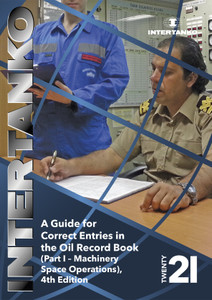
This publication outlines the guidelines on international offers of assistance (IOA) in response to a marine oil pollution incident.
This guide to international offers of assistance (IOA) in response to marine oil pollution incidents is designed to be consulted during large, complex or significant oil spills within inland areas as well as marine or coastal environments. Topics covered include:
- Recommended considerations for parties involved in IOA
- IOA coordination system
- communications between parties
- customs, legal and financial issues
- advanced planning
- response equipment categories, stockpiles and source considerations.
The Deepwater Horizon (DWH) Mobile Offshore Drilling Unit (MO DU) spill incident in the Gulf of Mexico in April 2010 highlighted the importance of international stakeholder planning and coordination to ensure maximum resource availability and utilization during a catastrophic oil spill or hazardous substance event. Several nations stepped forward to assist the United States during the DWH incident. These offers included equipment, technical expertise and general assistance. The extensive support from the international partners of the United States cannot be overstated; however, the event highlighted the need for guidelines for procedures for requesting and receiving emergency assistance in events of this scale including a common lexicon of equipment terminology and an international equipment inventory.
The Guidelines on international offers of assistance (IOA ) in response to a marine oil pollution incident was considered at the OPRC-HNS Technical Group, a subsidiary body of the Marine Environment Protection Committee (ME PC) of the International Maritime Organization (IMO ), finalized at the second session of the Sub-Committee on Pollution Preparedness and Response (PPR), and approved at the sixty-eighth session of the ME PC in May 2015.
Foreword
Executive Summary
1. Background
2. Discussion of issues involved with International Offers of Assistance (IOA)
3. Recommended considerations for parties involved in IOA
4. IOA Coordination system
5. Communications between requesting and assisting parties during IOA
6. Recommendations for offer processing and evaluation procedures
7. Customs, legal and financial issues
8. Facilitation of situational awareness and common operating picture
9. Advanced planning for IOA
10. Response equipment stockpiles and source considerations
11. Common lexicon for significant equipment and personnel types
12. High-capacity spill response equipment categories
13. References
Appendices
Appendix 1: Sample notification and request for assistance report
Appendix 2: Sample offer communication (from assisting party to requesting country)
Appendix 3: Sample receipt communication (from requesting country to assisting party)
- 4: Sample acceptance/decline communication (from requesting country to assisting party)
Appendix 5: Common lexicon for significant equipment and personnel types
Appendix 6: Sample requested/offered resource form
Appendix 7: Sample offer receipt documentation form
Appendix 8: Regional coordination centres
Appendix 9: Excerpts from IMO's Annex to resolution A.983(24), Guidelines for Facilitation of Response to a Pollution Incident
Appendix 10: Glossary
Appendix 11: Acronyms
Appendix 12: Equipment and personnel lexicon glossary
As a specialised agency of the United Nations, IMO is the global standard-setting authority for the safety, security and environmental performance of international shipping. Its main role is to create a regulatory framework for the shipping industry that is fair and effective, universally adopted and universally implemented.
In other words, its role is to create a level playing-field so that ship operators cannot address their financial issues by simply cutting corners and compromising on safety, security and environmental performance. This approach also encourages innovation and efficiency.
Shipping is a truly international industry, and it can only operate effectively if the regulations and standards are themselves agreed, adopted and implemented on an international basis. And IMO is the forum at which this process takes place.
- Number of Pages:
- 78
- ISBN:
- 9789280116519
- Published Date:
- August 2016
- Book Height:
- 300 mm
- Book Width:
- 210 mm
- Author:
International Maritime Organization
- Preview:
- Yes
- Publication Date:
- July 2016





